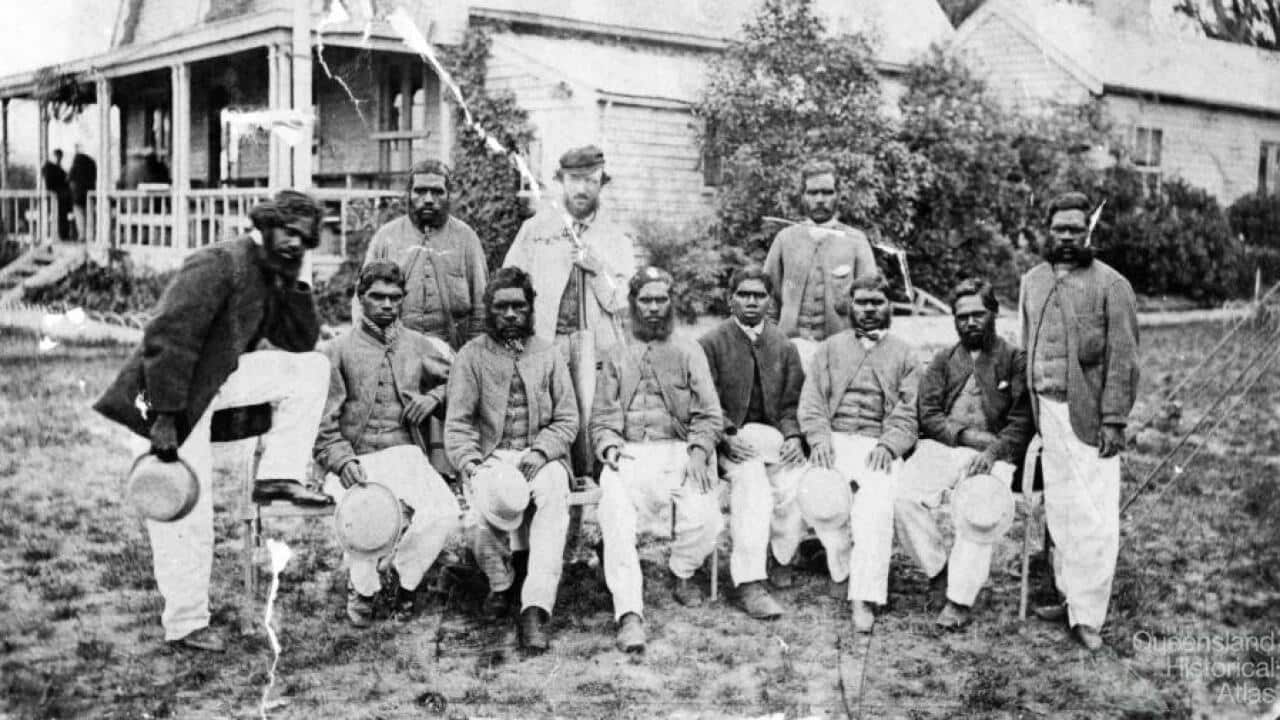The efforts of Indigenous cricketers were instrumental in the years ahead of the creation of one of the greatest international rivalries in world sport: The Ashes.
But while the first Australian cricket team selected for a Test tour of England was full of Aboriginal players, in 1868, there have been just five Indigenous cricketers who have played for Australia.
And the number to play the game generally each year has been very limited, although that is something Cricket Australia is working hard to change.
Looking back, in 1866 on Boxing Day, a cricket match between an Aboriginal XI and the Melbourne Cricket Club was played at the MCG. It was one of the most significant cricket games ever played and included notable performances from players such as Johnny Mullagh and Jonny Cuzens.
Mullagh and Cuzens were then a part of the touring team which went to England in 1868 and their efforts place them among the most famous Indigenous cricketers to have played the game.
In 2016/2017, more than 54,000 Indigenous Australians participated in organised cricket throughout the country. That’s more than double the amount in the 2014/15 season.
Cricket Australia has a big focus on continuing to promote cricket as a game worth playing and increase the number of Aboriginal and Torres Strait Islander cricketers there are in Australia.
Of course we're expected to see some remarkable performances in the future, but going back in time, here’s a look at 10 of the best Indigenous cricketers so far.
Faith Thomas
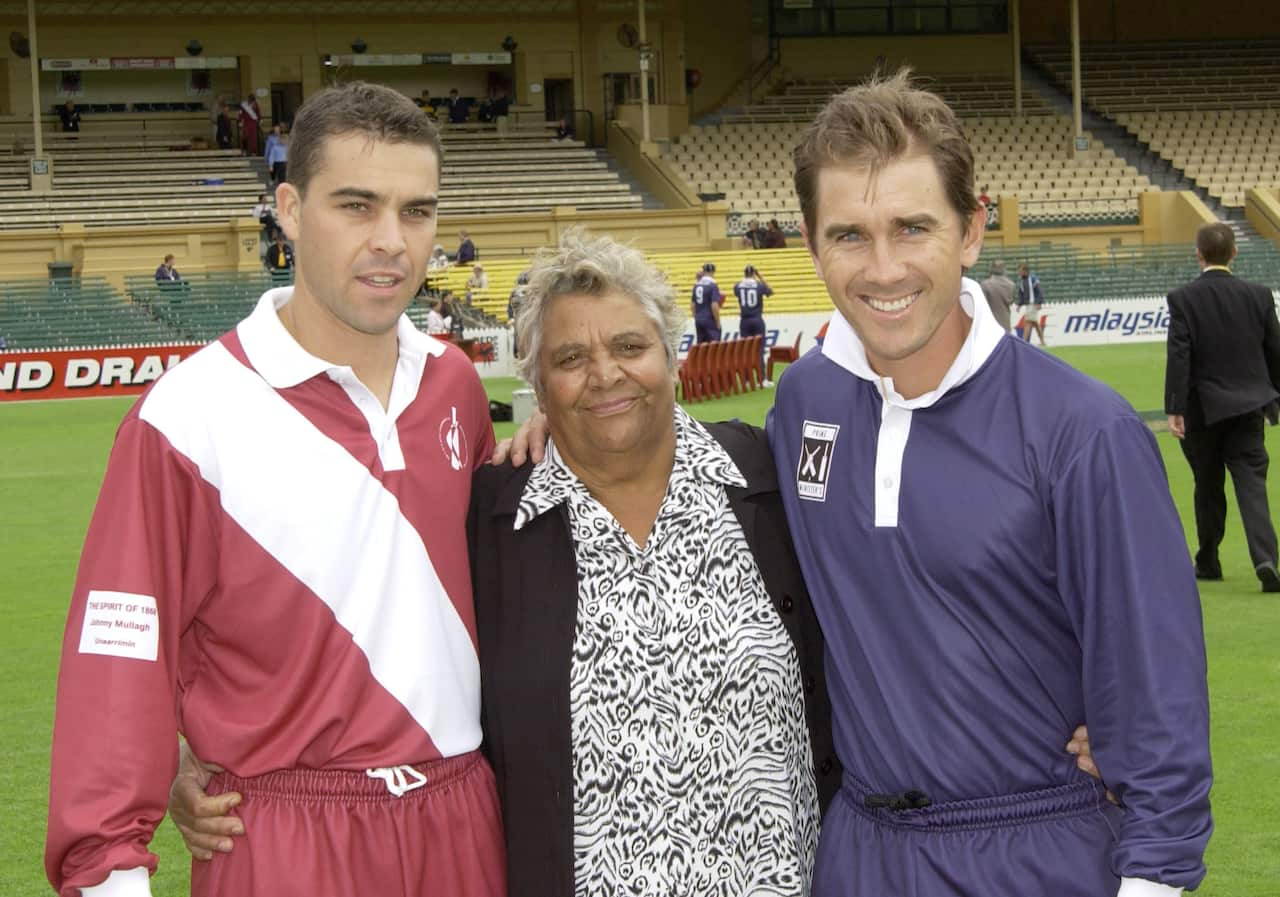
Faith Thomas is not only the first Aboriginal cricketer to play for Australia, she is also the first Aboriginal woman to represent Australia in any sport. The Adnyamathanha woman made her Australia debut in 1958 and loved a yorker. She bowled with raw pace off just a few steps and was known for sending stumps flying. Impressively, Thomas played her final game in NZ when she was eight months pregnant with her son. A true pioneer in Australian sport, she has been awarded a Member of the Order of Australia.
Jason Gillespie
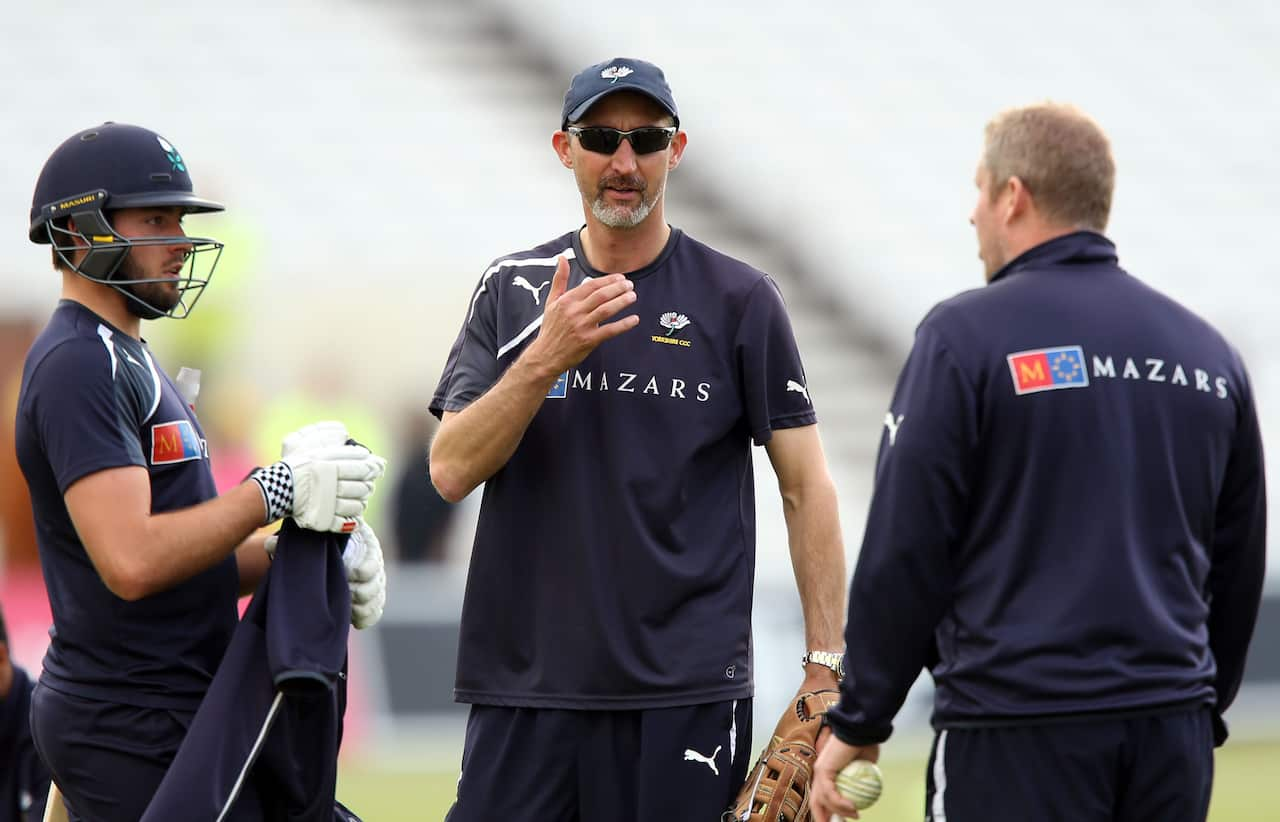
Jason ‘Dizzy’ Gillespie was the first Aboriginal man to play cricket for Australia. In 71 Tests, the Kamilaroi man took 259 wickets at an average of 26.13, and bowled as part of one of cricket’s premier attacks. Famous for his long, flowing curly hair and for scoring an unbeaten 201 against Bangladesh, Dizzy has since become a sought-after and successful coach at the elite level.
Ashleigh Gardner
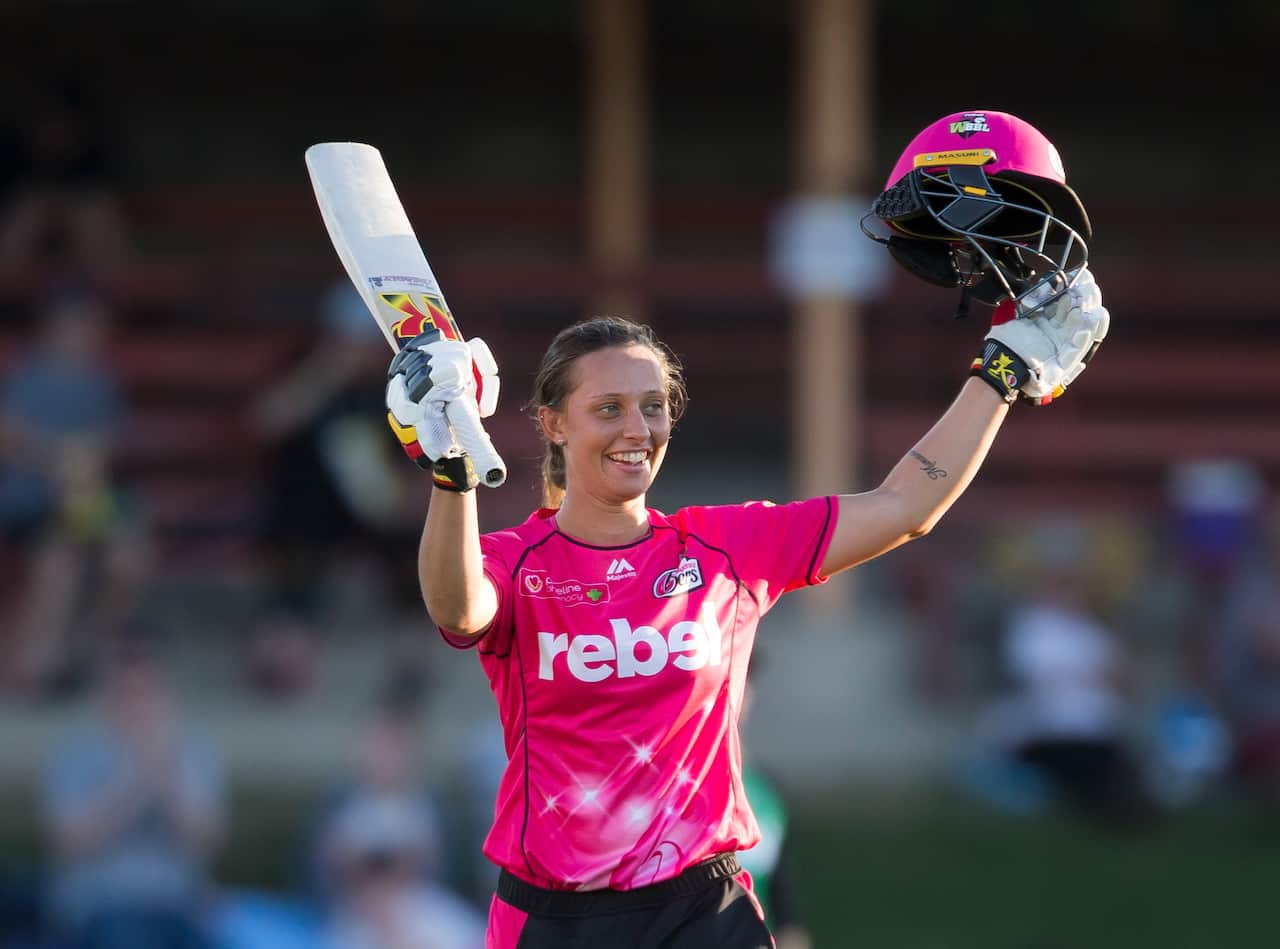
A current star of Australian women’s cricket Ashleigh Gardner is an explosive batter and off-spin bowler who is taking the game by storm. At the age of 18, Gardner captained the National Indigenous women’s squad on a tour of India and that experience and leadership opportunity seem to have helped push her to a new level. Still awaiting a Test debut, the Muruwari woman played all three T20s and two of the three one-day internationals in the recent women’s Ashes series. As further indication that Gardner is just getting started, the 21-year-old belted the highest score in WBBL history in 2016's opener, posting an unbeaten 114 off 52 balls.
Dan Christian
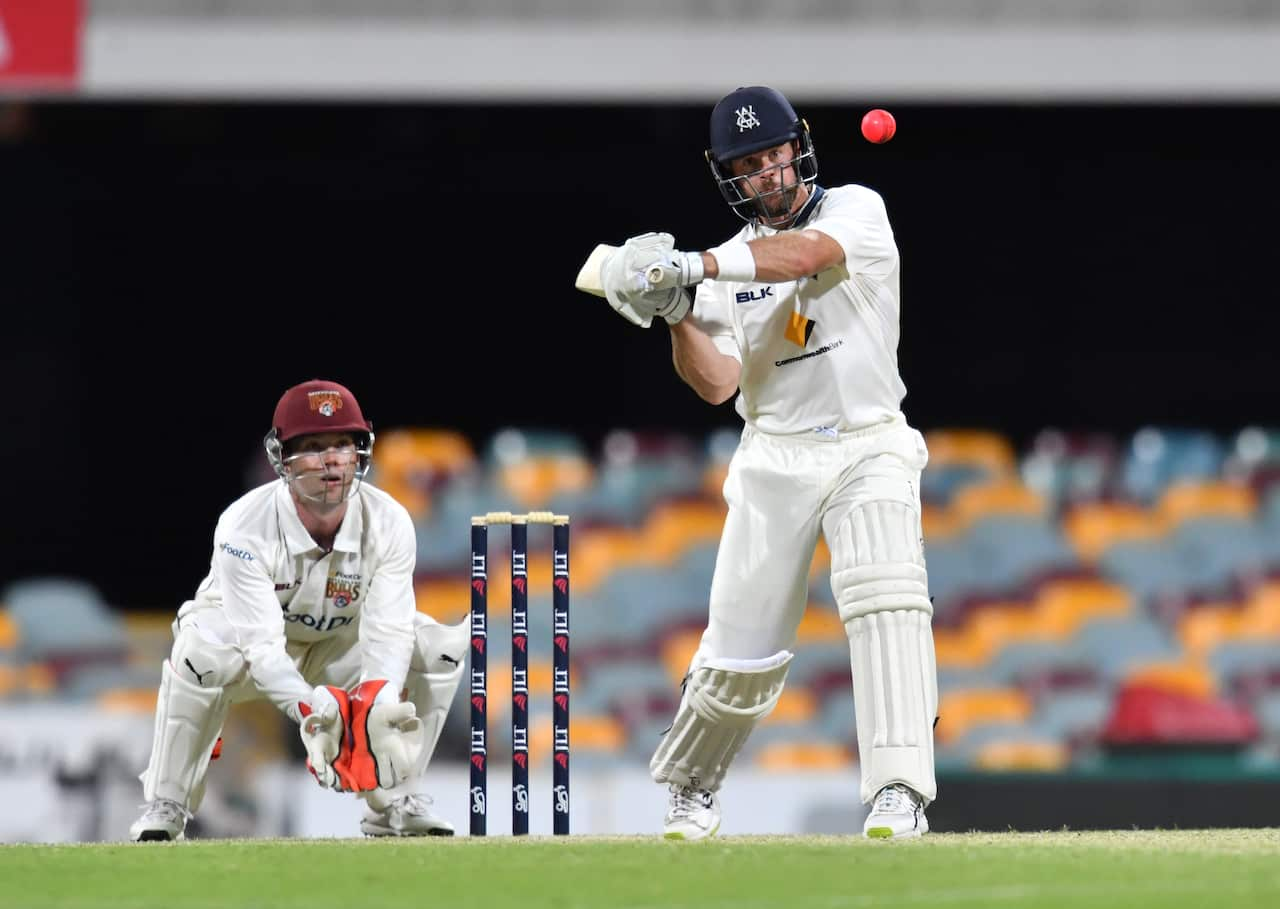
At his best, Wiradjuri man Dan Christian was one of the premier all-rounders in Australian and world cricket. A prodigious short-form player who has represented Australia’s ODI and T20 team, Christian came within a whisker of making his Test debut, when selected in Australia’s squad for the Boxing Day Test in 2011. Months later he took 5/31, including a hat-trick, in an ODI against Sri Lanka. The now 37-year-old has played all over the world, including the prestigious Indian Premier League Twenty20, and in 2017 captained Nottinghamshire to the County T20 win.
Johnny Mullagh
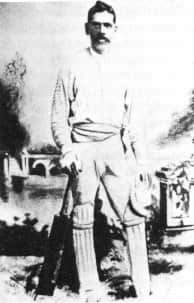
Johnny Mullagh was a star all-rounder in the pioneering days of Aboriginal and Torres Strait Islander cricket. He top-scored for the Aboriginal XI in the match against the Melbourne Cricket Club on Boxing Day in 1866 and took two wickets in an eye-catching display. He then went with the Aboriginal side on the six-month, 47-match tour of England in 1868 and was reported to have finished the trip with 245 wickets and almost 1700 runs.
Johnny Cuzens
Johnny Cuzens played in the Aboriginal XI at the MCG on Boxing Day in 1866. The team was captained by Tom Wills, a white man, and Cuzens was a premier bowler. He took seven wickets in the match on Boxing Day against the Melbourne Cricket Club and then performed strongly on the six-month tour of England, as part of the first Australian sporting team to play abroad.
Scott Boland
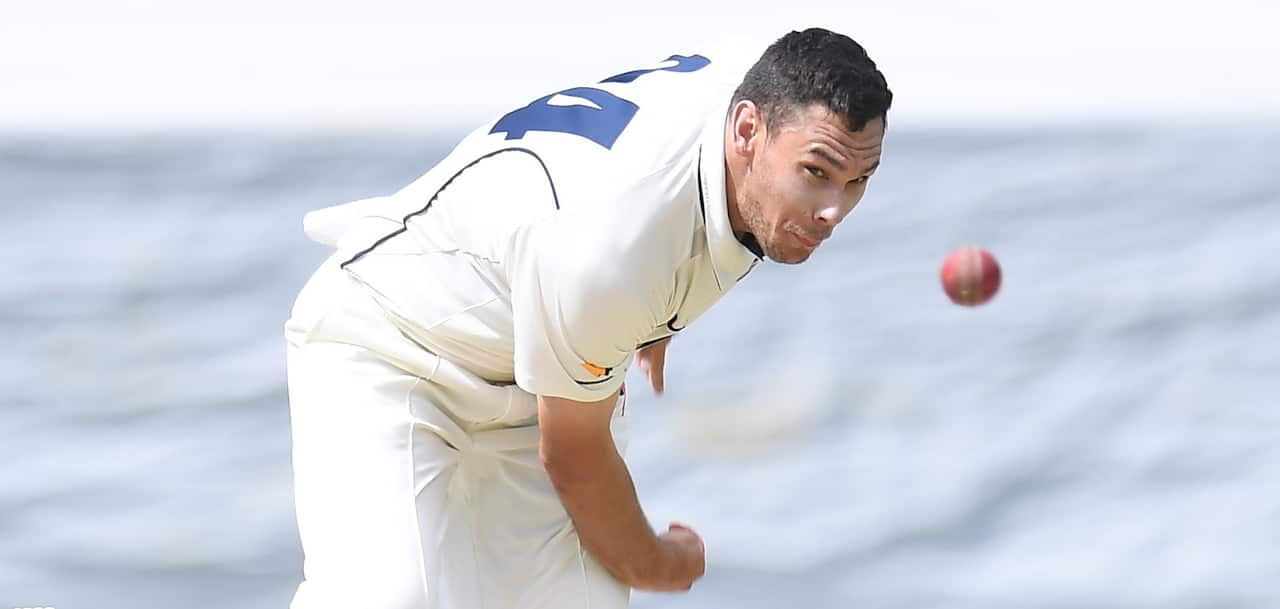
Scott Boland, a Gulidjan man, is one of the better Australian men’s bowlers currently playing cricket.
He has played ten test matches, 14 one-day internationals and three Twenty20 internationals for Australia, and 47 first class matches, taking 144 wickets at an average of 28.48. At 31 years of age, Boland’s best years may yet be ahead of him. He is a winner of the Bill Lawry Medal for Victoria’s Sheffield Shield player of the year.
Jack Marsh
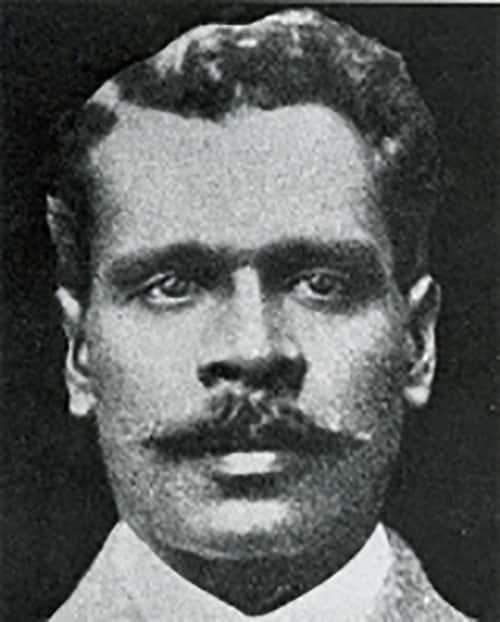
A champion athletics sprinter, Marsh was known as the fastest man in Australia and then took up cricket late. Despite that, he quickly rose to local representative squads and played six first class matches for NSW, making his debut in 1900/1901. Marsh’s first class career yielded 34 wickets at an average of 21.47, including one 10-wicket haul for a match and three five-wicket hauls in an innings. He terrorised batsmen with his pace and was described as the best bowler in the world in the early 1900s.
Eddie Gilbert
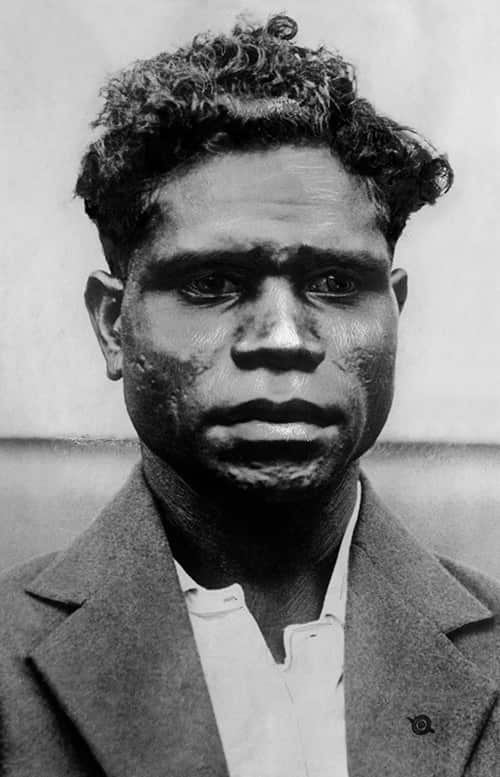
Don Bradman said Eddie Gilbert produced the fastest bowling he had faced (faster than Larwood or anyone in the Bodyline series) and Gilbert bowled with such ferocity that Sir Don’s bat was knocked out of his hands. Playing for Queensland against NSW in 1931, Gilbert dismissed Bradman for a duck and also dismissed Wendell Bill in that same over. From 23 first class matches, Gilbert took 87 wickets at an average of 28.97.
Albert Henry
Albert Henry made his first class debut in 1901 and played seven first class games for Queensland, taking 26 wickets at an average of 32.04. His grade cricket record was superb and touring Englishmen who faced him during 1903/04 said he was the fastest bowler they had seen.
Shark Curry: A Cricket Delicacy follows the journey of WA cricketer Kavita Pepper from remote Shark Bay to the bustling cities of India as the Australian Indigenous Women's team goes on their overseas cricket tour.
NITV and SBS are the official National NAIDOC Principal Media Partner and the official Education Partner. For information on how the network is celebrating Aboriginal and Torres Strait Islander excellence go here.
NAIDOC Week 2020 runs 8 – 15 November. Stay connected by following #NAIDOC2020
